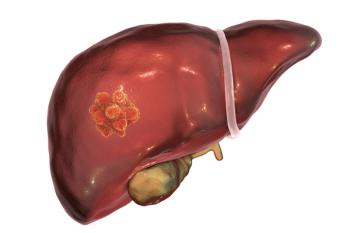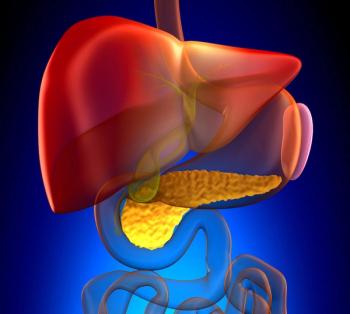
Data from the phase 2 NIPU trial support the FDA’s fast track designation for UV1 in combination with nivolumab and ipilimumab as a treatment for those with unresectable pleural malignant mesothelioma.

Your AI-Trained Oncology Knowledge Connection!


Data from the phase 2 NIPU trial support the FDA’s fast track designation for UV1 in combination with nivolumab and ipilimumab as a treatment for those with unresectable pleural malignant mesothelioma.

Julie M. Vose, MD, MBA, gave a brief overview of the 2023 American Society of Hematology Annual Meeting & Exposition, as well as what to be on the lookout for in 2024.

Screening frequency appears to be a weak risk factor for advanced breast cancer, with obesity in post-menopausal and dense breasts in pre-menopausal patients being more prominent factors.

Investigators are assessing the safety, tolerability, and initial efficacy of BST02 in those with advanced or metastatic liver cancer as part of a phase 1 trial.

Treatment with NT-I7 may boost the immune system and enhance antitumor activity in patients with pancreatic cancer and other solid tumors.

Tisotumab vedotin may become the first antibody drug conjugate to receive marketing authorization in the European Union as a treatment for those with cervical cancer.

The Lymphoma Research Foundation MCL Scientific Consortium and Workshop focused on relevant topics that can help clinicians personalize treatment for patients.

Notions of blame around smoking may be a prominent factor in patients with lung cancer feeling stigmatized for developing their disease, according to Lisa Carter-Bawa PhD, MPH, APRN, ANP-C, FAAN.

A 77% increase in the risk of developing cancer by 2050 was determined by the World Health Organization in a recent survey.

Combining pembrolizumab with cabozantinib produces encouraging efficacy in platinum-ineligible patients with advanced urothelial carcinoma, says Rohit K. Jain, MD, MPH.

Benefits with enfortumab vedotin plus pembrolizumab in prespecified patient subgroups with urothelial carcinoma in the EV-302 trial appear to be consistent with outcomes in the overall study population.

Treatment with liso-cel appears to result in clinically meaningful activity across several subgroups of patients with mantle cell lymphoma, including those with high-risk features.

Adding bevacizumab to atezolizumab plus carboplatin and pemetrexed appears to be tolerable among patients with metastatic nonsquamous non–small cell lung cancer.

Findings from the phase 1/2 LINKER-MM1 trial support the marketing authorization application for linvoseltamab in the management of relapsed/refractory multiple myeloma.

Considering tumor genomics, personalization of therapy, and the use of biomarkers, experts in the mantle cell lymphoma field discuss how to best utilize these strategies to improve treatment outcomes.

Considering cystectomy in patients with bladder cancer may help with managing the shortage of Bacillus Calmette-Guerin, according to Joshua J. Meeks, MD, PhD, BS.

Most patients with acute myeloid leukemia appear to remain on treatment with ziftomenib plus standard-of-care therapy in the phase 1 KOMET-007 trial.

Patients with benign thyroid tumors resected with a transoral endoscopic thyroidectomy vestibular approach have less complications vs those treated with a standard surgical approach.

Data from the phase 2 SPEARHEAD-1 trial support the biologics license application for afami-cel as a treatment for patients with advanced synovial sarcoma.

Clinical practice guideline amendments detail novel urinary biomarkers and agents that may improve Bacillus Calmette-Guerin efficacy in the management of non-muscle invasive bladder cancer.

FDA initiatives such as the Food and Drug Omnibus Reform Act will set goals and specify measures for improving representation in pediatric cancer clinical studies.

Starting April 1, 2024, Diane Simeone will be the new director of UCSD Moores Cancer Center.

Findings from the phase 3 PERSEUS trial support the supplemental New Drug Application for the daratumumab and hyaluronidase-fihj combination in transplant-eligible newly diagnosed multiple myeloma.

Patients with multiple myeloma appear to feel confident in being able to report adverse effects associated with bortezomib independently via digital tools.

Data from the phase 3 INSPIRE trial may support iruplinalkib as a new treatment option for those with advanced ALK-positive non–small cell lung cancer.

A positive CHMP opinion may lead to an approval of idecabtagene vicleucel in the European Union for patients with relapsed/refractory multiple myeloma.

Anemia in patients who receive talazoparib plus enzalutamide for metastatic castration-resistant prostate cancer appears to be manageable without any compromises in patient-reported outcomes and quality of life.

Japan’s Ministry of Health, Labour, and Welfare also accepted a supplemental new drug application for lisocabtagene maraleucel in relapsed/refractory follicular lymphoma.

Adding daratumumab to VRd induction and consolidation therapy plus lenalidomide maintenance provides a benefit with respect to MRD-negative status among patients with multiple myeloma.

At 1 and 2 years, patients with hepatocellular carcinoma and narrow surgical margins experienced encouraging recurrence-free survival rates following adjuvant radiotherapy in the phase 2 RAISE trial.